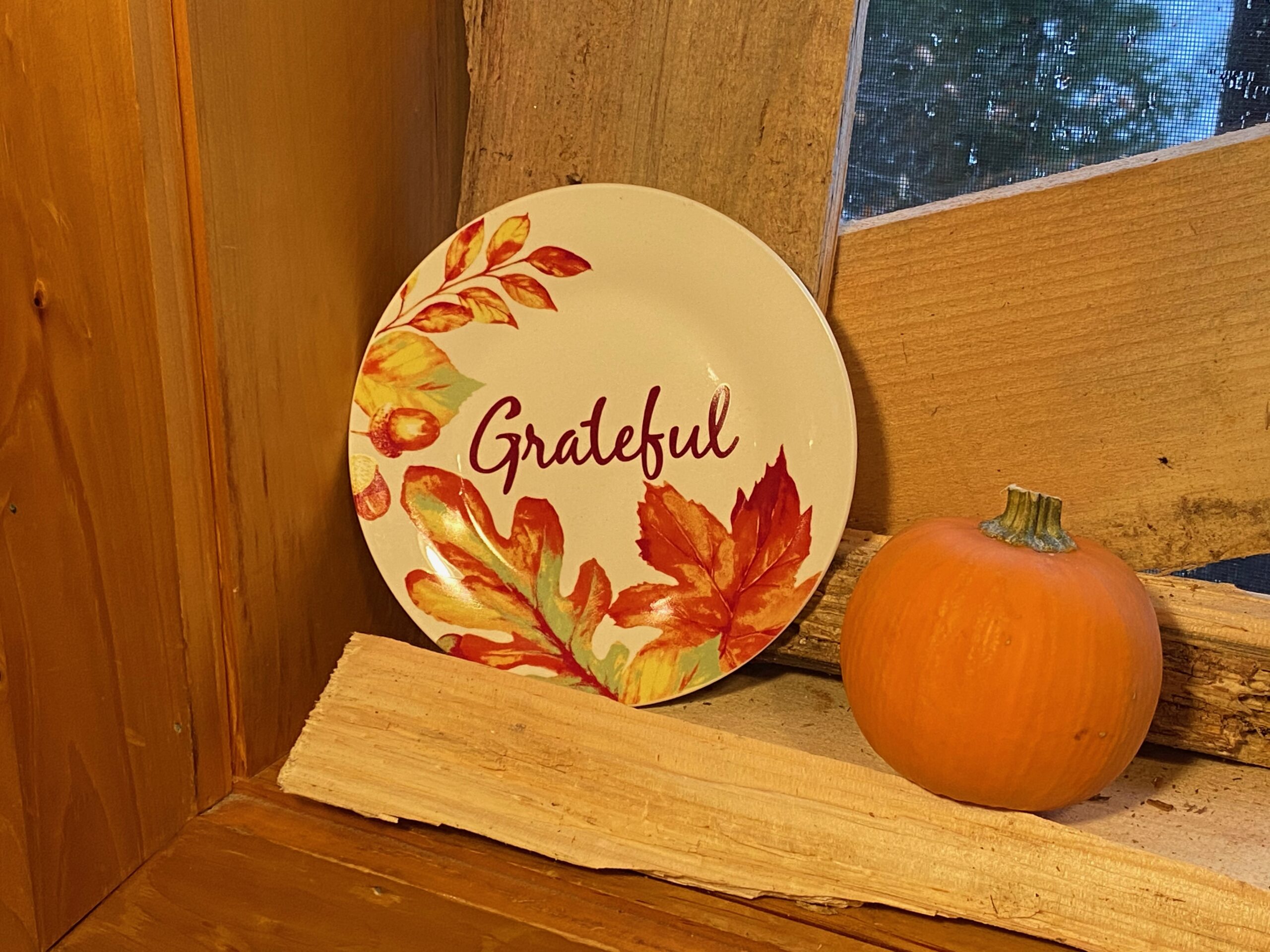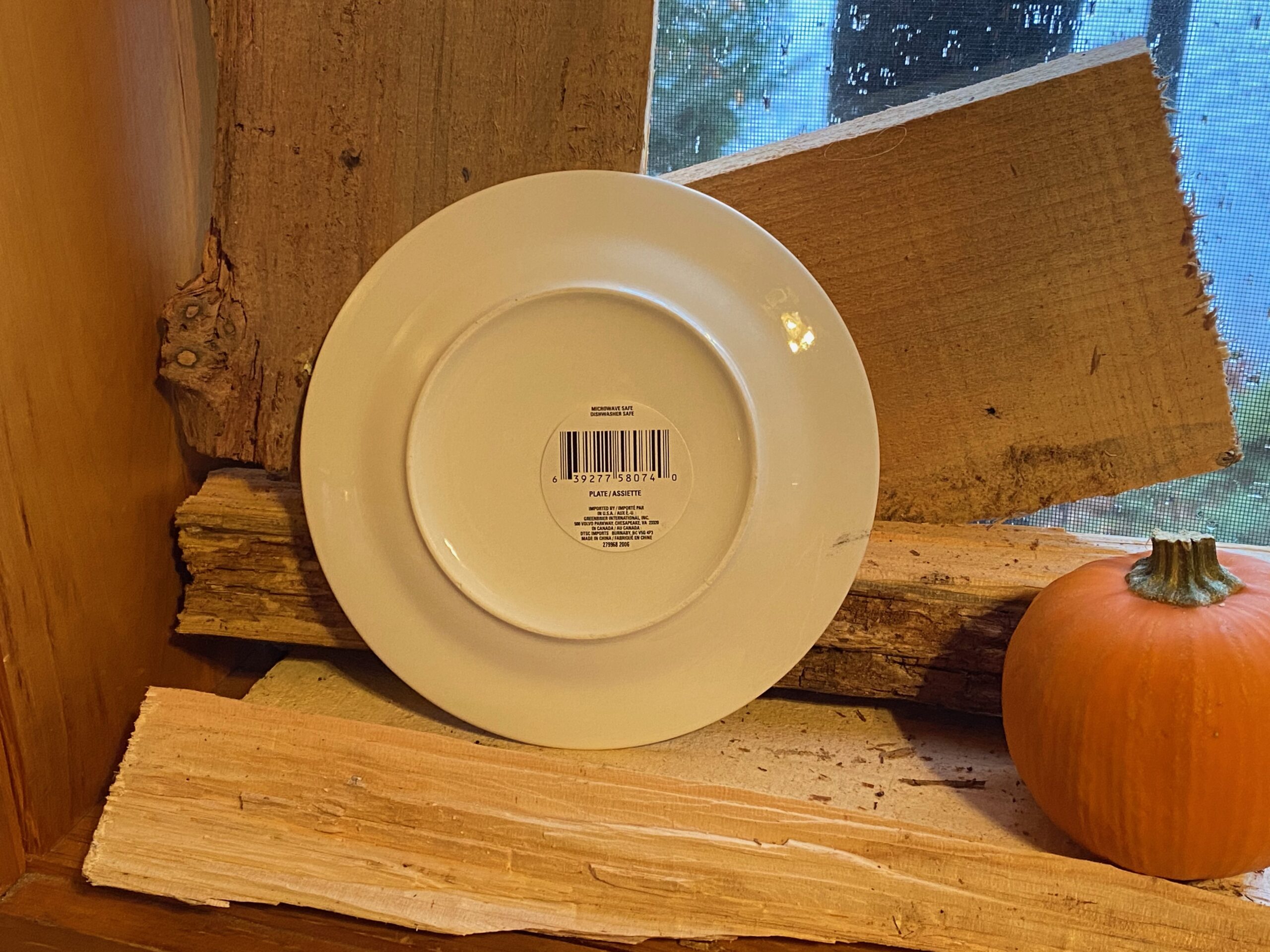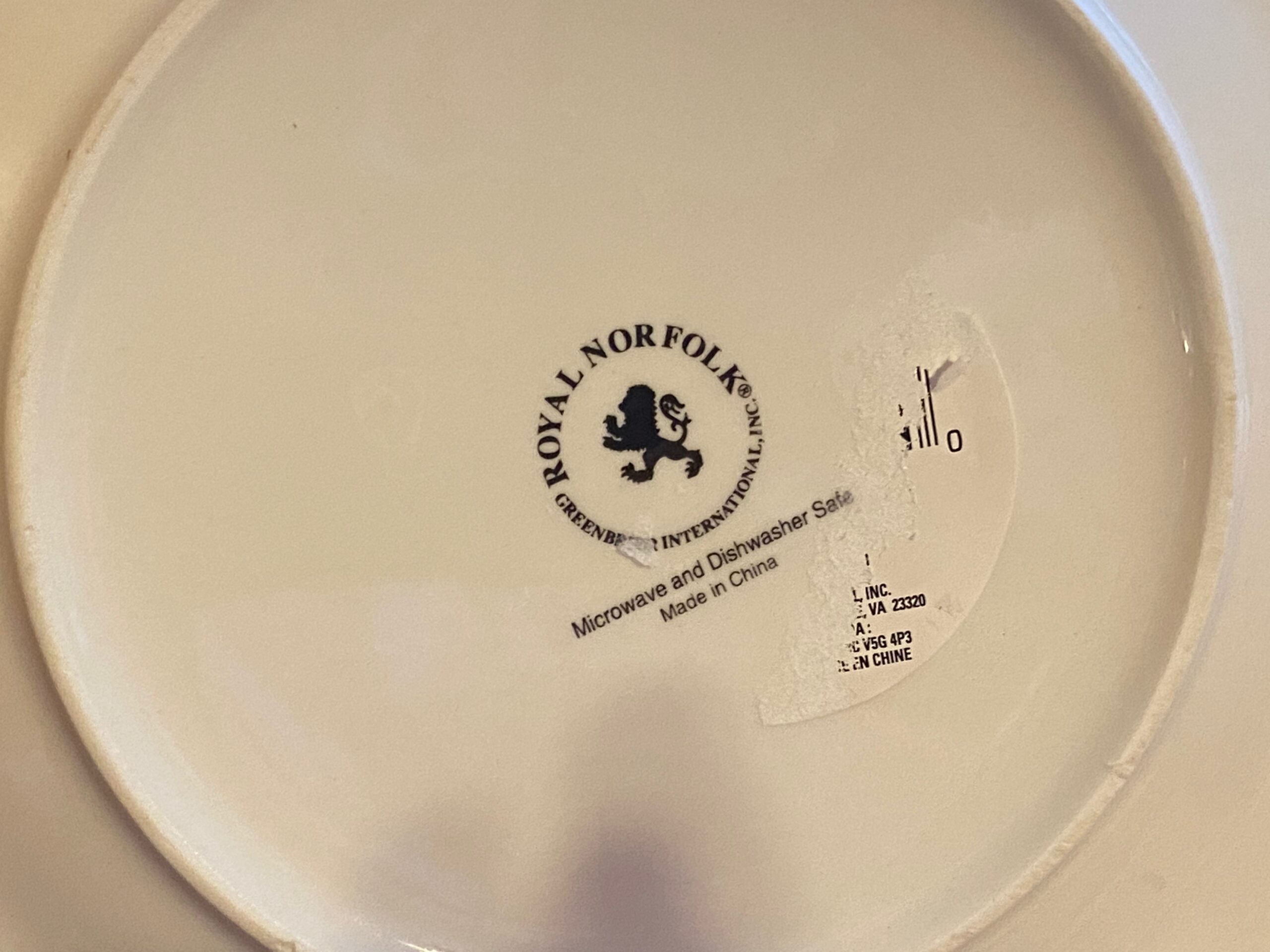Dollar Store Royal Norfolk Greenbrier International “Grateful” Dish: 573 ppm Cadmium (a known carcinogen).
 Introduction (for those new to this website):
Introduction (for those new to this website):
Tamara Rubin is an independent advocate for consumer goods safety. She is also a mother of Lead-poisoned children. She began testing consumer goods for toxicants in 2009 and was the parent-advocate responsible for finding Lead in the popular fidget spinner toys in 2017. Tamara uses XRF testing (a scientific method used by the U.S. Consumer Product Safety Commission) to test consumer goods for metallic toxicants, including Lead, Cadmium, Mercury and Arsenic.
When tested with an XRF instrument, this Greenbrier International ceramic Royal Norfolk dinner plate [with a “Grateful” / Thanksgiving pattern on the food surface – purchased at a Dollar Tree store in 2020] had the following readings:
On the food surface of the dish:
60-second test – red area of leaves
- Cadmium (Cd): 573 +/- 19 ppm
- Silver (Ag): 8 +/- 3 ppm
- Zirconium (Zr): 1,437 +/- 34 ppm
- Bismuth (Bi): 56 +/- 12 ppm
- Palladium (Pd): 8 +/- 3 ppm
- Zinc (Zn): 12,300 +/- 300 ppm
- Copper (Cu): 57 +/- 27 ppm
- Iron (Fe): 1,161 +/- 133 ppm
- Indium (In): 15 +/- 6 ppm
- Vanadium (V): 1,078 +/ – 150 ppm
- Titanium (Ti): 2,530 +/- 262 ppm
On the food surface of the dish:
60-second test – letters of word Grateful
- Cadmium (Cd): 413 +/- 15 ppm
- Selenium (Se): 229 +/- 24 ppm
- Bismuth (Bi): 72 +/- 13 ppm
- Palladium (Pd): 8 +/- 3 ppm
- Zinc (Zn):12,000 +/- 300 ppm
- Iron (Fe): 1.510 +/- 153 ppm
- Vanadium (V): 378 +/ – 134 ppm
- Titanium (Ti): 1,088 +/- 242 ppm
On the food surface of the dish:
60-second test – green area of leaves
- Cadmium (Cd): 140 +/- 9 ppm
- Chromium (Cr): 578 +/- 146 ppm
- Bismuth (Bi): 44 +/- 12 ppm
- Tin (Sn): 52 +/- 11 ppm
- Palladium (Pd): 7 +/- 3 ppm
- Zinc (Zn): 9,361 +/- 254 ppm
- Copper (Cu): 85 +/- 32 ppm
- Iron (Fe): 1,178 +/- 151 ppm
- Vanadium (V): 288 +/ – 153 ppm
- Indium (In): 14 +/- 7 ppm
- Vanadium (V): 540 +/- 120 ppm
- Titanium (Ti): 1,423 +/- 214 ppm
How much Cadmium is “too much” Cadmium?
Even though Cadmium is known to cause cancer is not illegal to apply Cadmium-based pigments on the food surface of functional dishware in the United States. The State of Washington has a limit of 40 ppm above which it considers Cadmium to be unsafe in consumer goods intended for use by children. The Country of Denmark has a limit of 75 ppm. Washington State is also the only State that I am aware of that considers dishware to be an item intended for use by children. As a result these may be considered illegal in Washington State but the State may not have an issue with it if the Cadmium is non-leaching at the time of manufacture. XRF test results do not indicate whether or not a toxicant is leaching.
Some additional reading:
- To read more about the concern for Lead in pottery and dishware, click here.
- To see more items from the Dollar Store that I have tested, click here.
- To see more Thanksgiving themed items I have tested, click here.
- To read more about the type of testing I do, click here.
- To read more about the concern for Cadmium in consumer goods, click here.
As always, please let me know if you have any questions.
Thank you for reading and for sharing my posts.
Tamara Rubin
#LeadSafeMama

Never Miss an Important Article Again!
Join our Email List




I was wondering if you may have tested the other Thanksgiving dinnerware from The Dollar Tree, they have a plate that looks like the smaller plate that says “Blessings” the larger plate has the same leaf patterns but the wording has been omitted. Also is there reason for concern for the fall drinking glasses that accompanies the dishes? Thank you in advance for your help and insight.
I purchased these plates and have been using them for over a year when my daughter found that the red and orange paint from the plates was rubbing off on her napkin. I tried to search to see if anyone else was having this problem and found your test results for cadmium content! This should be illegal especially when the paint is rubbing off as it can easily attach itself to the food you are eating. Thank you for your content.